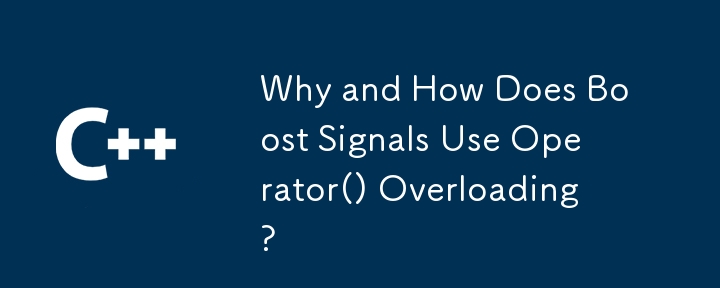

Leveraging Operator() Overloading for Enhanced Programming
In the Boost Signals library, the overloading of the () operator has sparked confusion among some developers. This article explores the purpose and conventions behind operator() overloading in C and its potential benefits.
Concept of Functors
Operator() overloading is a powerful technique used to create functors, which exhibit function-like behavior with the added advantage of statefulness. They retain data between calls, allowing them to maintain an internal state.
Usage Example
Consider the following simple functor:
struct Accumulator {
int counter = 0;
int operator()(int i) { return counter += i; }
};Here, the accumulator functor tracks the running sum of its arguments.
Generic Programming and Algorithms
Functors play a significant role in generic programming, enabling the development of highly reusable algorithms that can accept different operations. For example, the STL algorithm std::for_each allows the application of operations on each element of a range using either functors or function pointers.
Overloading the () Operator
Overloading the () operator in C is a valid practice that enables the creation of functors with multiple overloaded parentheses operators. However, it is essential to ensure compliance with method overloading rules and avoid ambiguous overloads based solely on the return type.
The above is the detailed content of Why and How Does Boost Signals Use Operator() Overloading?. For more information, please follow other related articles on the PHP Chinese website!




